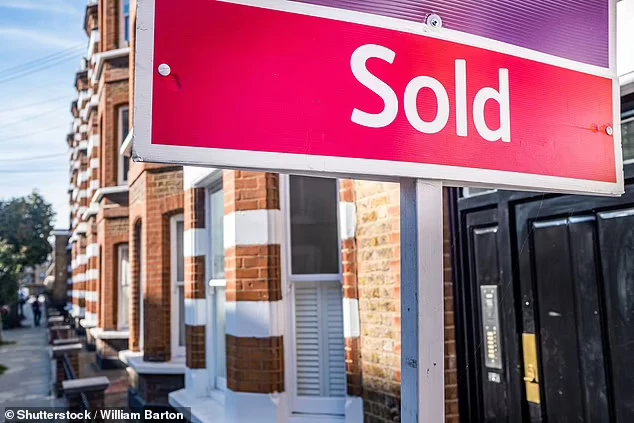
- New rules mean warmer homes for tenants, but upgrades may be expensive
Landlords may choose to sell their properties due to the cost of meeting Government energy efficiency targets for rented homes, experts believe.
The Government confirmed this week that all rented properties in England must have an Energy Performance Certificate (EPC) of ‘C’ or above by 2030.
The requirement was part of the Government’s election manifesto, and was repeated by energy security secretary Ed Miliband at this week’s Labour Party conference. The plan will be consulted on later this year.
Experts say many landlords may be forced to sell properties rather than meet the new EPC rules, unless the Government offers extra support.

A spokesperson for the National Residential Landlords Association (NRLA) said: ‘Some landlords may find that they are unable to finance the improvements needed, particularly in areas with lower property values.
‘However our past research has shown that over 80 per cent of landlords had either made or planned to make energy efficiency improvements, with most using or planning to use their own savings or rental profits to fund the upgrades.’
A spokesperson for the British Landlords Association said: ‘Yes, some landlords are already selling.’
The cost of upgrading rented properties to an EPC rating of C and above can cost thousands of pounds.
In theory this should also improve the value of the property, but it does mean landlords having to shoulder an upfront cost. For some properties, especially older ones, the cost rises substantially.
NRLA figures show that solid wall insulation can cost more than £20,000, especially in homes built without cavity walls.
Landlords with more modern properties will typically pay £9,000 to meet the new EPC standards, Government figures show.
However, an NRLA spokesperson added: ‘The costs of these changes vary greatly depending on the type of property.
‘It is also important to take into consideration how landlords are impacted by the region their properties are based in. Our research in 2021 found that in some local authority areas of the North and Midlands, the estimated costs of improving home energy are around 25 per cent of property values.
‘By contrast, in affluent parts of London and the South East the cost of retrofitting with heat pumps represents less than 2 per cent of overall property value.’
It may not be possible for landlords to meet the 2030 deadline, either.
The NRLA spokesperson said: ‘If there is clarity at an early stage on what’s required, sufficient tradespeople, and a financial package that means landlords can plan upgrades, 2030 may be possible.
‘But equally, if the expectation is to retrofit every rental property not currently EPC C or above by 2030 there is an enormous amount of work to do in a very limited period of time.
‘Otherwise, landlords may struggle to afford the high cost of home improvements, and may miss the 2030 target altogether, reducing the number of rental homes available and pushing up rents.’
Asked if landlords would meet the deadline, the BLA spokesperson simply said: ‘No.’

There is also a chance that rents might have to rise to cover the cost of energy upgrade work.
The NRLA said: ‘Upgrading to an EPC C will require a higher level of investment – and the ability of landlords to fund this themselves will vary, particularly given the regional variability in their options to leverage finance from their property values.
‘Some landlords may have to increase rents to match increased maintenance costs, but this will depend largely on the landlord’s individual circumstances and the type of property.’
The BLA said that rents would not rise for EPC reasons, but only as they are rising already due to many landlords already leaving the letting sector.
Finding up-to-date figures on the number of rented properties in England that are below EPC band C is tricky.
There are around 4.5 million rented homes at EPC ratings of D or below in the UK, according to data analysts Outra in 2023 – not just England, where the 2030 rule applies.
The last Government figures show that 8 million properties in England were below band C – or 31 per cent of the total 25.2million properties – but this dates back to the 2021 census and is for all homes, not just rented ones.
Original Post from https://www.thisismoney.co.uk/


